What we do

BUILD YOUR FUTURE TODAY
The amount of work the BFT Center has done since its inception is truly outstanding. The work can not be justified in a simple list but we hope the following can illustrate the true impact and the scale of the difference your support enables.
Where We Work
Cambodia is divided into 25 provinces. The capital Phnom Penh is not a province but an “autonomous municipality”, equivalent to a province governmentally and administered at the same level as the other 24 provinces.
Each province is then made up of a number of districts, from two in the smallest province of Kep to 14 in Battambang, Prey Veng, and Siem Reap. Further subdivision levels are khum (communes) or sangkat (quarters) and finally phum (villages).
THE VILLAGES
BFT has delivered projects and services to over 40 villages throughout the Siem Reap Province and in its surrounding neighbours.
Click on the map to read some of the stories of how BFT has changed the lives for the people in these villages.



HOW WE WORK
BFT provides education and social care in the form of “peacebuilding” (working with monks and nuns to solve domestic problems), plus four-year development projects that aim to make villages self-sustainable. The projects involve providing freshwater, healthcare, building (especially of schools and community centers), plus agricultural and business development through a strong core team of Cambodians, backed by a global network of volunteer support groups and individuals that raise funds, provide advice, and work alongside the villagers they help.
The BFT Center, based in Siem Reap, is staffed by a capable and experienced local team that manages the organization’s programs in terms of
- Education Development
- Health and Nutrition
- Capacity Building and Livelihood Development
- Peace Building
- A Child Support and Learning Center
Supporting the BFT team are:
- Local partner organisations (including the Angkor Hospital for Children)
- Visiting specialist teams (including healthcare, education and professional training)
- Groups from service clubs and other organisations
- Local and international volunteers
A global board of directors helps in terms of strategy, grant applications, fundraising and advice. Friends of BFT and volunteer groups in various countries raise funds for particular projects, as well as providing sponsorship and microfinance for individuals and groups.




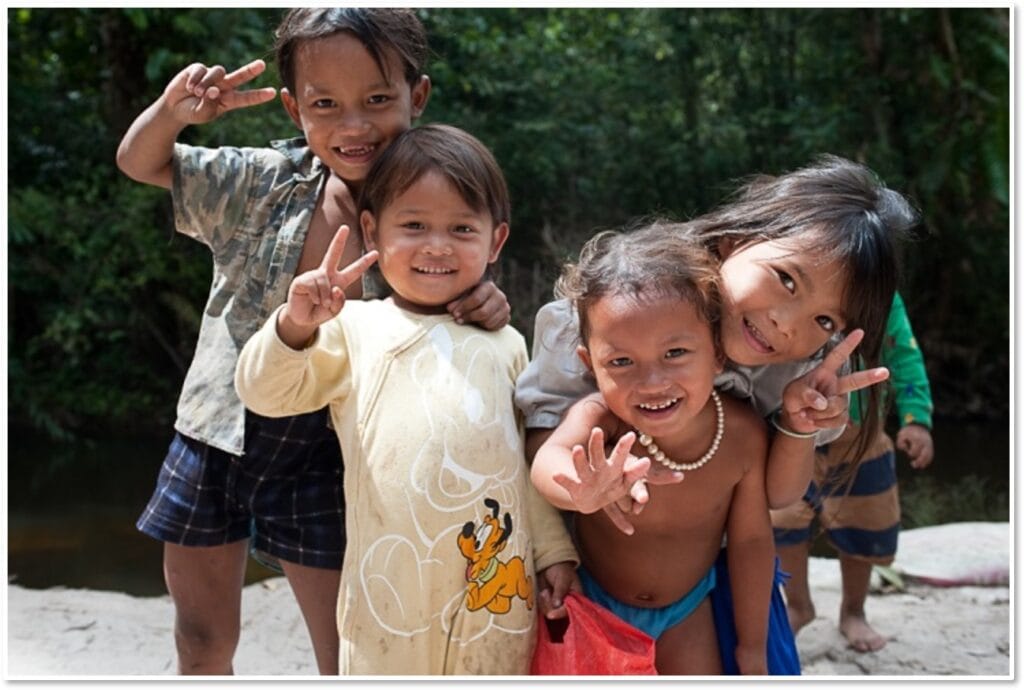
OUR PROGRAMS
BFT offers five core programs to improve the lives of children and families in the villages, and for children in the area around the BFT Center.
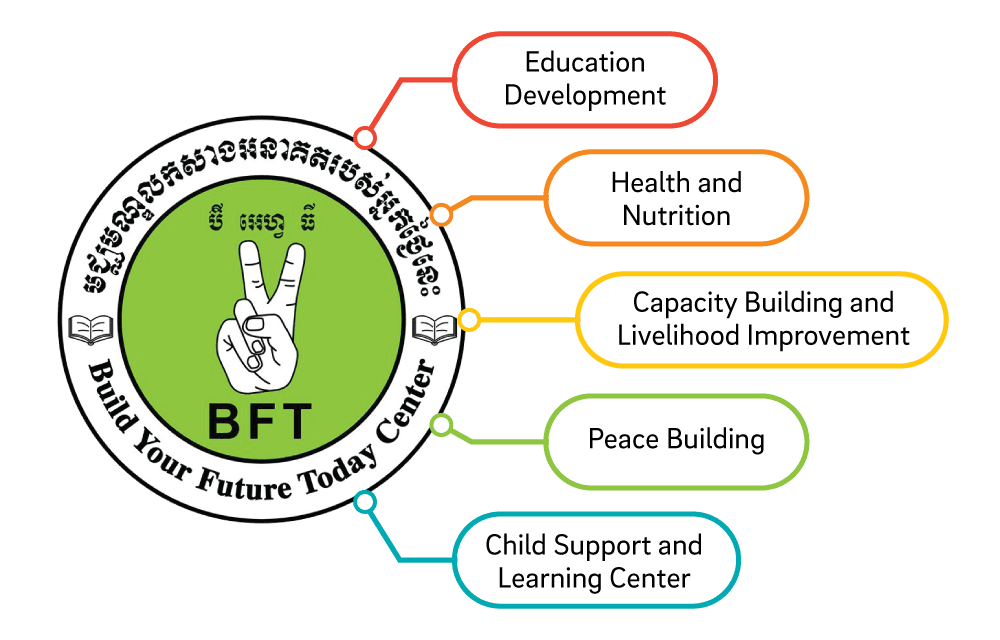
A major component of BFT’s village projects is in the area of “Water and Sanitation” (part of our Health and Nutrition program). See here for details of latest project work in this area.
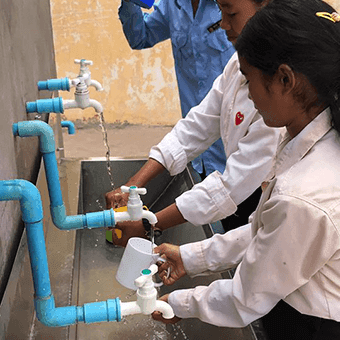
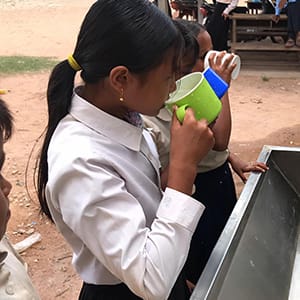
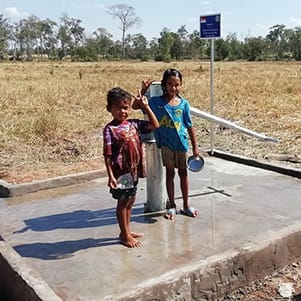
BFT has a fully integrated approach to improving the lives of the families and children in our villages. Only by addressing all aspects of the lives of individuals and the development of communities can the cycle of poverty be broken.
Building Self-Sustainability
It is important to understand, however, the importance of integrating these programs to achieve self-sustainability, for example:
- Children cannot learn unless they have good nutrition
- Developing a nutritious diet can be assisted by developing local agriculture.
- Growing crops and raising animals requires a reliable water supply.
- Parents are not able to release their children to go to school if they rely on them to work in the rice fields.
- Establishing new jobs requires adult education, training and microfinance.
Village Projects
BFT has developed a Village Project approach, which involves implementing, in each village where it is applied, a 4-year plan, with the major developmental work undertaken in the first 12 months, plus three years of further development and support.
This approach has been successfully applied in two villages, with a third to start in 2016. The total cost for implementing such a project is in the order of $US 50,000 per annum over 4 years (depending on village size and existing infrastructure). BFT is seeking support from corporates, service organisations or individuals who would be interested in funding or collectively participate in bringing a Village Project to life.
The project approach, as illustrated, involves the prioritisation of the project activities and recognises the interdependence of those activities:
